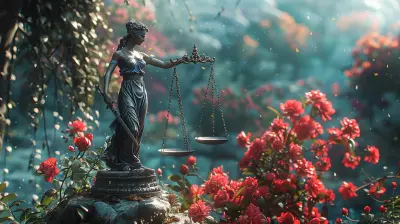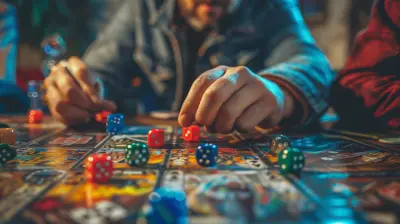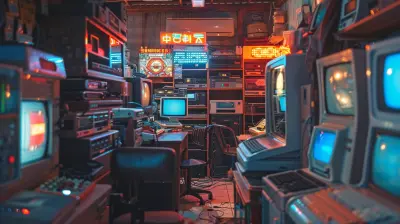Companions and Party Dynamics: Strategies for Success in RPGs
26 July 2025
When it comes to RPGs — whether you’re knee-deep in a fantasy epic or steering a spaceship lightyears from Earth — one thing can make or break your adventure: your companions. Yep, your ragtag crew of misfits, warriors, mages, misanthropic rogues, and loyal beasts are more than just walking stat sheets. They’re the beating heart of every RPG story.
And let's be real — a well-balanced party can steamroll bosses. A lopsided one? Say hello to "Game Over" screens for days.
In this in-your-face deep dive, we’re talking party dynamics. We’ll crack open what makes a badass team, how to sync up your crew like a finely tuned war machine, and how to milk each companion’s personality, strengths, and quirks to dominate your next RPG campaign.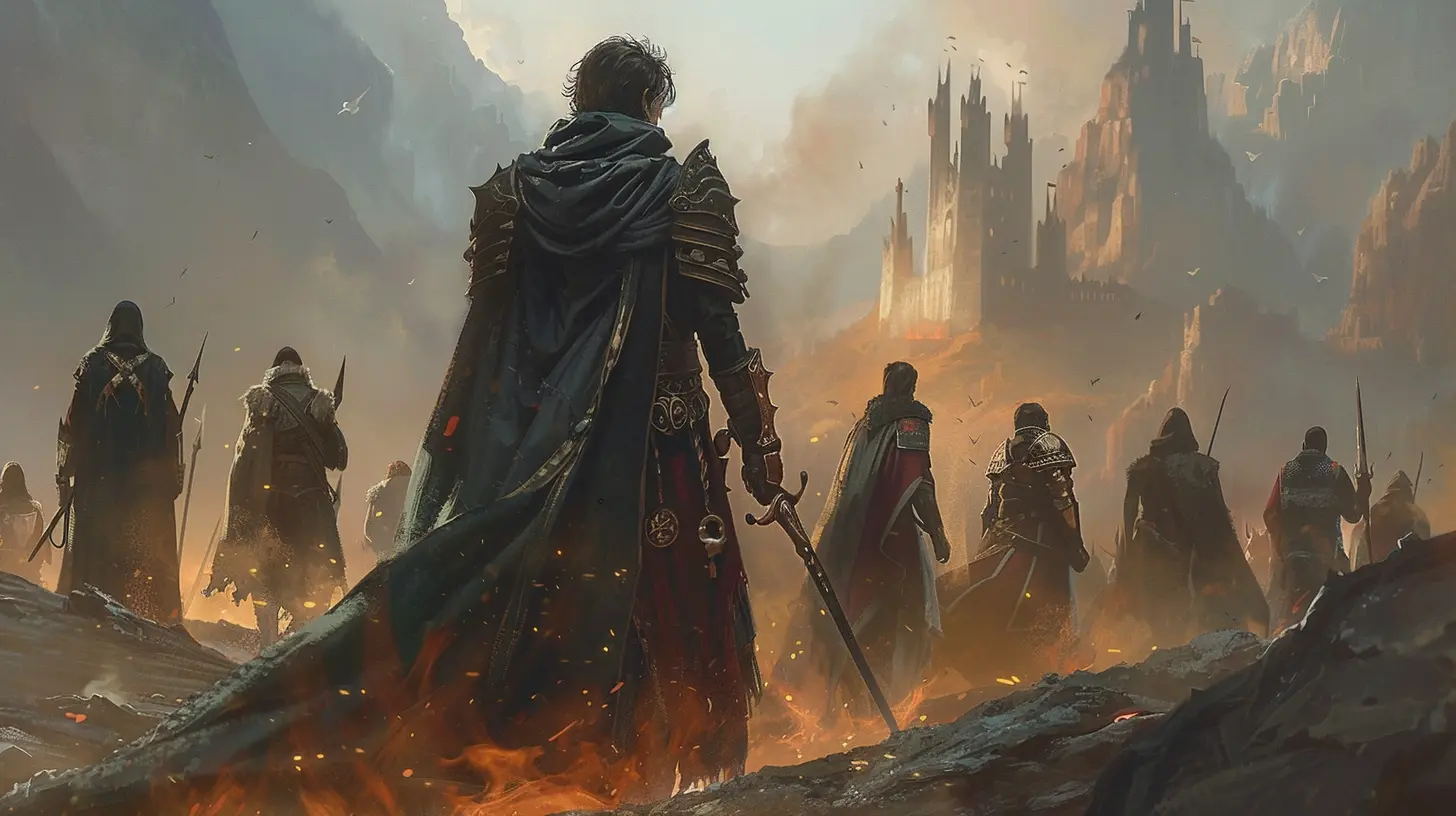
The Power of the Party: Why Your Companions Matter
Ever tried soloing a dungeon in an RPG that's obviously built for a full party? Yeah... it’s like trying to fight a dragon with a toothpick. RPGs are designed with synergy in mind. That means your companions aren’t just backup dancers — they’re the damn band.Good companions will:
- Fill in your weaknesses
- Elevate your strengths
- Offer emotional and narrative depth
- Provide clutch support in battle (hello, combat buffs!)
- Throw some spicy banter to keep things entertaining
So, don’t just collect companions like Pokémon. Build relationships. Understand their mechanics. Learn what makes them tick.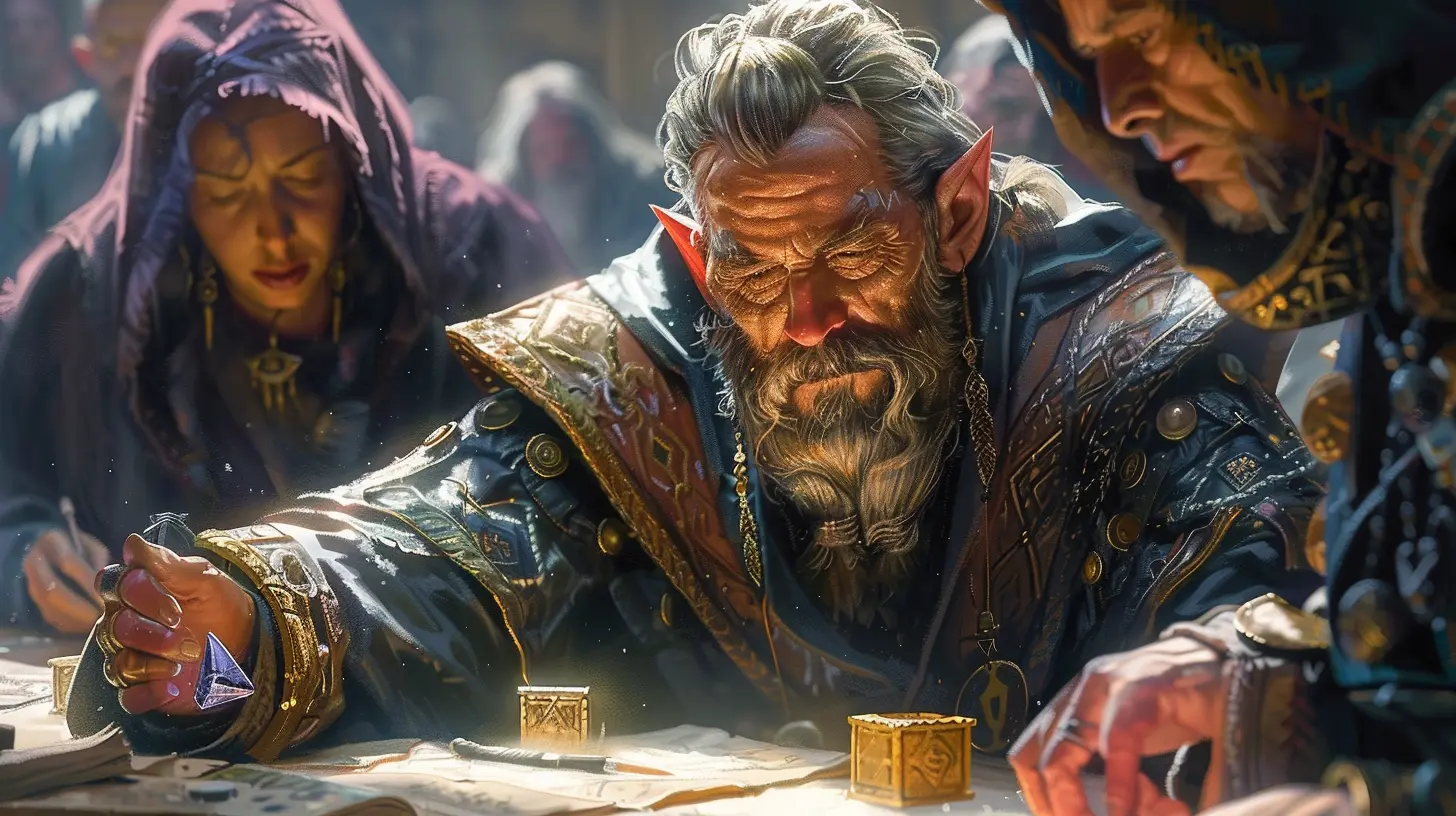
First Things First: Know Thy Party Roles
Let’s break it down like a classic fantasy setup. Most parties fall into familiar RPG archetypes, each serving a specific function:1. The Tank (aka Meat Shield Supreme)
The Tank draws enemy fire like a lightning rod. Absorbs damage so your squishier team members can do their thing. Think of them as your party’s brick wall with attitude.- Examples: Paladins, Warriors, Juggernauts
- What to Look For: High defense, aggro control, taunts, shielding abilities
2. The DPS (aka The Glass Cannon)
Pure offense. These are your heavy-hitters. They might go down faster than a wet paper bag if left exposed, but damn do they pack a punch.- Examples: Rogues, Archers, Mages
- What to Look For: Critical hit potential, burst damage, AoE (Area of Effect) spells
3. The Healer (aka The Lifeline)
You might forget about them until you’re at 5 HP, but never underestimate the power of a clutch heal. The healer is the backbone of any long-term survival plan.- Examples: Clerics, Medics, Restoration Druids
- What to Look For: Heal-over-time abilities, resurrection skills, cleansing debuffs
4. The Support (aka The Buff Machine)
Need to boost your party’s abilities or nerf your enemies into oblivion? That’s what support characters are for. They’re the tactical minds behind your win.- Examples: Bards, Enchanters, Technicians
- What to Look For: Buffs, debuffs, utility skills, crowd control
Not every RPG will give you clean-cut roles, but understanding these archetypes helps you keep a balanced squad, no matter the genre or setting.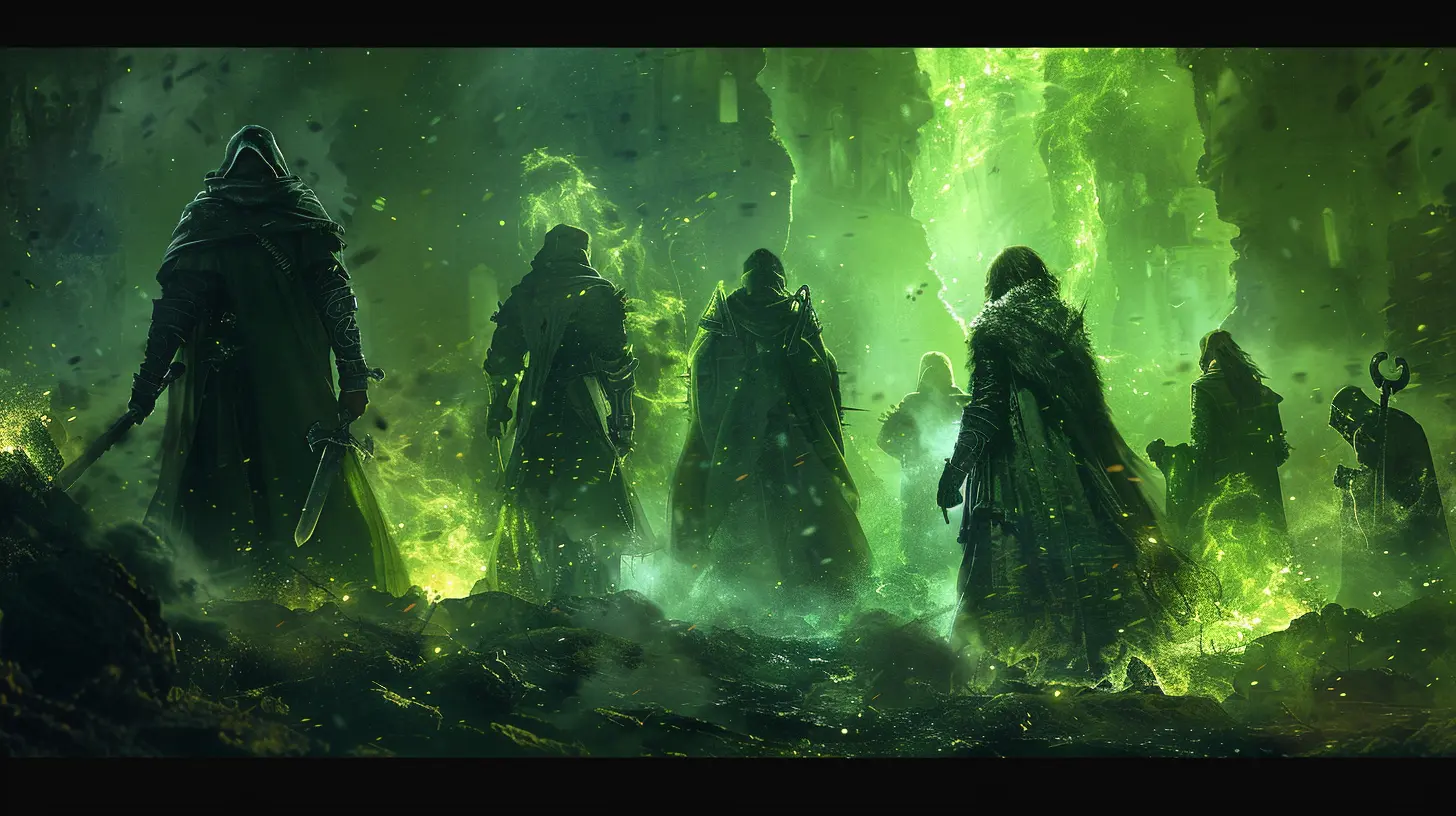
Party Composition: It’s All About Balance, Baby
Slamming together your three favorite characters just ‘cause they look cool? Rookie mistake.You want diversity. You want synergy. Let’s talk about the different kinds of party compositions that kick major ass:
The Balanced Party
- 1 Tank + 1 Healer + 1 DPS + 1 Support- Safe, reliable, good for all-around adventuring.
- Great for first-time players or tougher difficulty modes.
The Glass Cannon Party
- All-in on DPS characters, minimal defense or healing.- High-risk, high-reward. You'll melt enemies... until they melt you.
- Requires pinpoint positioning and perfect timing.
The Crowd Control Party
- Focuses on disabling enemies rather than outright killing them.- Stunning, freezing, charming — control the battlefield like a puppet master.
- Not flashy, but devastating when used right.
The Combo Machine
- Build around characters whose skills combo off each other.- Like a fire mage who ignites oil traps set by your rogue.
- Super satisfying when it works. Requires some planning.
Bottom line: mix it up. Don’t always roll with the same crew, especially if the game encourages character rotation. Some fights need a different flavor.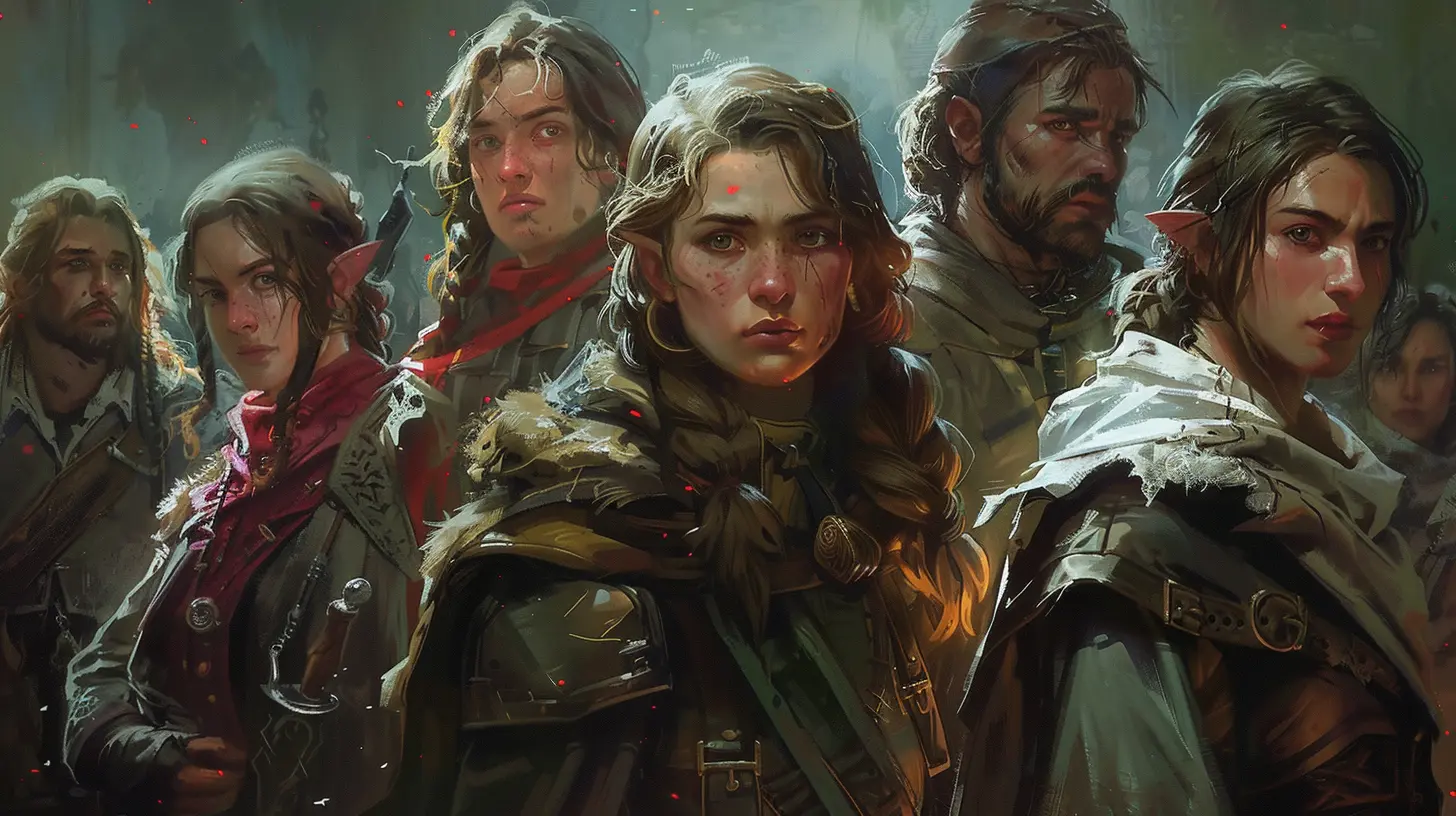
Personality + Combat: Why Both Matter
Sure, stats are important. But don’t sleep on personality. A companion's narrative role and personal quests can unlock game-changing assets — unique skills, secret equipment, hell, even alternate endings.Chemistry Counts
Some RPGs (looking at you, BioWare and Larian) go full-on relationship simulator. Characters have likes, dislikes, rivalries. Grouping two characters who hate each other? Expect arguments mid-quest. Pairing up friends? You might unlock combo attacks or unique dialogue.Moral Alignment
Bringing a lawful-good paladin on an evil crusade? Might not end well. Characters with strong moral compasses could abandon you, or even attack you, depending on your choices.Romance & Loyalty
Flirting with someone in your party? Gotta make room in your strategy for loyalty missions and relationship building. Sometimes, a loyal companion hits harder or unlocks exclusive content.So yeah, building your party isn’t just about numbers. It’s about vibes too.
Switch It Up: Adapting Your Squad to the Situation
Sticking to one party all the time is like wearing the same weapon to every boss fight. It might work… until it really doesn’t.Here are some scenarios where switching up your lineup pays off big time:
1. Boss Fights
You want focused DPS and a solid healing backbone. This is where combo synergy really shines.2. Stealth Missions
Swap in rogues, rangers, or characters with stealth perks. No need to tank when nobody can see you.3. Puzzle Sections
Sometimes, it’s about who can interact with the world in unique ways — hacking, magic detection, perception checks.4. Dialogue-Heavy Quests
Bring companions that react to the environment or have personal stakes in the mission. You might unlock extra lore, loot, or even avoid combat entirely.The best RPG players don’t get comfy — they adapt.
Maximizing Companion Potential
Alright, let’s get into the nitty-gritty of how to fully optimize your crew:Gear & Builds
- Upgrade gear regularly — don’t just hoard items for your main character.- Customize loadouts for synergy: tank with high block chance, DPS with crit-enhancing gear.
- Re-spec characters if the game allows. It can breathe new life into an underwhelming teammate.
Skill Combos
- Look for abilities that chain together. For example:- Freeze enemy → Shatter with heavy attack
- Oil trap → Ignite with fire spell
- Stun → Sneak attack for double damage
AI Behavior
- Some games let you tweak how companions behave in battle.- Set up presets: aggressive, defensive, support, or customized routines (like "heal ally under 50%").
Use the Environment
- Positioning matters! Flanking bonuses, line-of-sight spells, explosive barrels — use them all.- Got a mage? Knock enemies into fire. Using a rogue? Set up ambushes with terrain.
Don’t Forget the Narrative Payoff
Beyond combat, companions make RPGs memorable. Think of Garrus in Mass Effect, Dogmeat in Fallout, or Tifa in Final Fantasy VII. These aren't just party members — they're family.Invest in their stories, complete their side quests, and don’t skip the small talk. You’ll often unlock:
- Special endings
- Unique abilities
- Deeper world lore
- Soul-crushing emotional moments (you know the ones)
If you're only viewing companions as stats with legs, you’re missing half the game.
Multiplayer RPGs and Party Dynamics
Wait, what if your party is real people?In co-op RPGs like Divinity: Original Sin 2 or Baldur’s Gate 3, party dynamics become even spicier. Now you’ve got to manage:
- Real-time coordination
- Role assignments (who’s the healer, huh?!)
- Trust — please don't open that cursed chest without telling us!
Communication is king. Co-op RPGs are where friendships are forged… or spectacularly imploded.
The Final Word: Your Party is Your Power
In RPGs, you are never alone — and that’s a damn good thing.Your party is your lifeline. Your safety net. Your chaos crew of unlikely allies. Take the time to build a team that not only compliments your playstyle but also makes the journey unforgettable.
So, next time you're building your squad, think past the numbers. Think about balance, banter, and badassery. Because a well-synced crew isn't just stronger — it turns your game from “pretty good” to “hell yeah, I’ll remember this forever.”
Game on. Choose wisely. And don’t forget to pet the animal companion — they’re the real MVP.
all images in this post were generated using AI tools
Category:
Role Playing GamesAuthor:

Emery Larsen
Discussion
rate this article
2 comments
Henry Bell
Great article! I really appreciate the insights on companions and party dynamics. Understanding how to balance relationships and roles in RPGs has transformed my gameplay experience. I’m excited to try these strategies in my next adventure. Thanks for sharing your expertise with the community!
November 25, 2025 at 5:21 PM

Emery Larsen
Thank you for your kind words! I'm thrilled to hear the insights resonated with you. Best of luck in your next adventure!
Faelith Nguyen
Effective companion selection and synergy can enhance gameplay significantly; focus on balance and communication for optimal party dynamics.
August 4, 2025 at 4:31 PM

Emery Larsen
Thank you for your insightful comment! I completely agree that effective companion selection and strong communication are key to achieving optimal party dynamics in RPGs.
